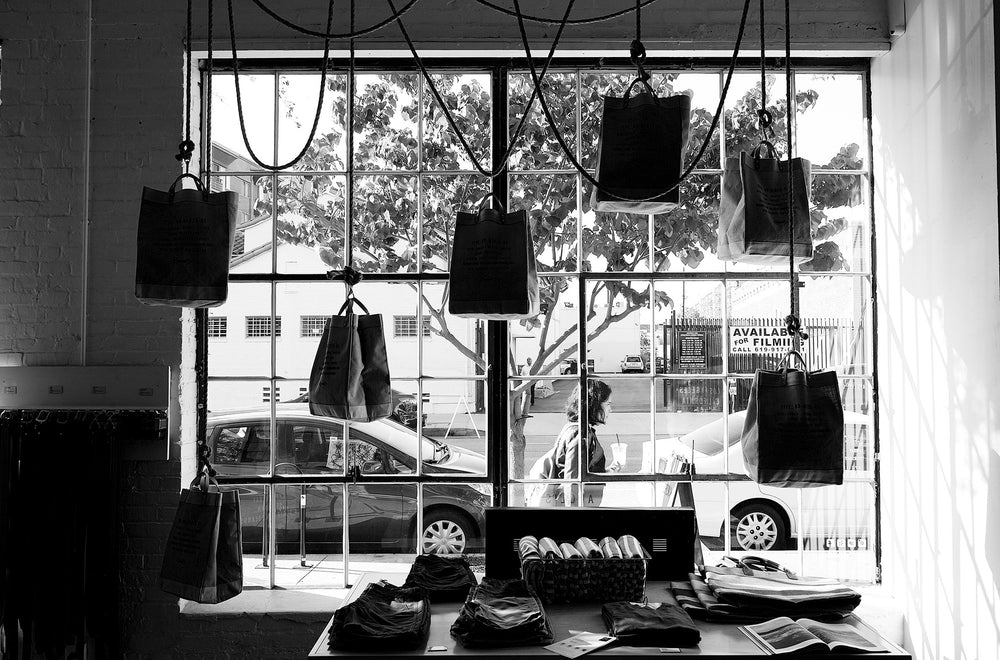Take a look at the tag inside of the shirt you’re wearing now. It’s safe to say that the country of origin is either China or somewhere that you’ve neither heard of or nor can pronounce. On the surface, cheap disposable fashion is fun to purchase. You wear it for a couple of months and it falls apart by the time the trend is over. Now if you’re not careful, you might catch some guilt courtesy of the working conditions of the people that made your H&M or Forever21 whatever. But thankfully not all American companies are as blind to the sins of mass clothing manufacturing. Apolis is one of those brands. It was founded in 2004 by brothers Raan and Shea Parton and they have vowed to create quality clothing by utilizing sustainable practices and local manufacturing for the betterment of the environment and global economy.


If you look at the tags inside of an Apolis garment, you will see the country of origin proudly displayed. Made in India. Made in Uganda. Part of Apolis’ mission statement is to create advocacy through industry and their travels have inspired them to create change by investing in people. Their business is classified as a B Corporation; this means Apolis had to pass through a rigorous set of regulations regarding environmental performance, transparency and accountability. They also focus on giving everyone involved in the manufacturing process equal stakes. There are names behind the embroiderers, sewers and fabric makers that create their clothing and Apolis has a personal relationship with each individual involved.
If we’ve learned anything from examining the shop owners of the Arts District in Downtown Los Angeles, we’ve discovered that this tight knit community is one that supports individuality, community and creativity. Each independent business has helped shape the Arts District into a borough that is unique within our vast city of neighborhoods. Whether it’s about creating a home environment in a coffee shop or an open conversation between strangers at a restaurant, Arts District Angelenos have proven the city to be more community-minded than a city full of people locked away in their cars and apartments. And that goes to show with the sheer amount of foot traffic in the Arts District (a difficult thing to achieve in Los Angeles), that more LA communities will take note and follow their lead.






